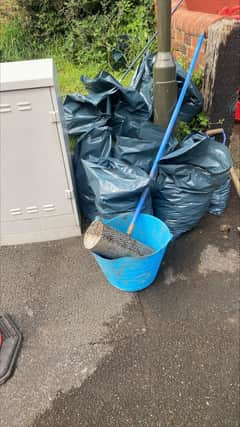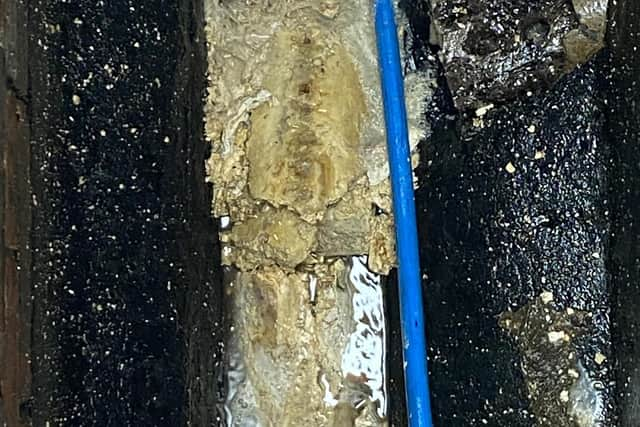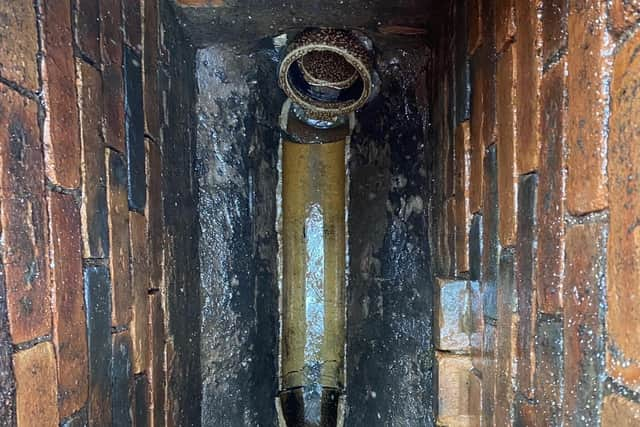13 bags of wet wipes removed from Chesterfield sewer - after causing blockage with residents unable to use toilets


The massive lump, consisting of 13 bags of wet wipes, was removed from a sewer that served a number of properties in Brampton.
As well as taking away the large number of wet wipes, Yorkshire Water’s team also removed congealed fat from the sewer.
Advertisement
Hide AdAdvertisement
Hide AdThe wipes and fats had caused a blockage within the sewer leading the customers on the street to be unable to use their toilets.


Lee Pinder, regional operations manager at Yorkshire Water, said: “Every day our teams deal with blockages caused by wet wipes. This costs millions of pounds to resolve, money which could be better spent on investment in the wider network.
“Our network protection team will be visiting the street to inform residents of what should and shouldn’t go down the toilet and sinks.
“Only the three 3Ps – pee, poo and paper – should be flushed down the toilet. Many wet wipes and sanitary items contain plastic and do not break down in the sewer as toilet paper does. These items can then group together and restrict the flows of wastewater to treatment works. Cooking fats should also be disposed of in the bin to prevent this from cooling in the sewer and clogging private pipework and the Yorkshire Water network.
Advertisement
Hide AdAdvertisement
Hide Ad

“In the worst cases, blockages caused by wet wipes, fats, oils and grease can lead to people being unable to use their toilets, sewage escaping the network onto roads and paths, or even pollution of local watercourses.”